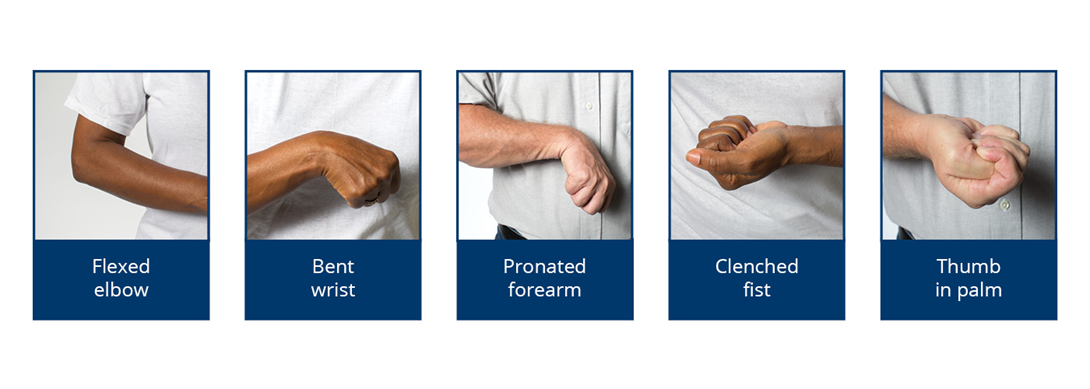To prevent deep vein thromboses following knee replacement surgery, an adult male client is receiving daily subcutaneous enoxaparin. Which laboratory result requires immediate action by the nurse?
Reference Range:
Hematocrit [42% to 52% (0.42 to 0.52 volume fraction)]
Platelets [150,000 to 400,000/mm² (150 to 400 × 10^9/L)]
Creatinine [0.5 to 1.1 mg/dL (44 to 97 μmol/L)]
Blood Urea Nitrogen (BUN) [10 to 20 mg/dL (3.6 to 7.1 mmol/L)]
Platelet count of 100,000/mm³ (100 x 10^9/L).
Hematocrit 45% (0.45 volume fraction).
Blood urea nitrogen (BUN) 20 mg/dL (7.1 mmol/L).
Serum creatinine 1.0 mg/dL (88.4 μmol/L).
The Correct Answer is A
Choice A reason: Platelet count of 100,000/mm³ (100 x 10^9/L) is below the normal range and indicates thrombocytopenia, which is a decrease in the number of platelets in the blood. Thrombocytopenia can increase the risk of bleeding and bruising, and can be a serious adverse effect of enoxaparin. This laboratory result requires immediate action by the nurse, such as notifying the prescriber, monitoring for signs of bleeding, and withholding the next dose of enoxaparin.
Choice B reason: Hematocrit 45% (0.45 volume fraction) is within the normal range and does not indicate any problem with the client's red blood cells or oxygen-carrying capacity.
Choice C reason: Blood urea nitrogen (BUN) 20 mg/dL (7.1 mmol/L) is within the normal range and does not indicate any problem with the client's kidney function or hydration status.
Choice D reason: Serum creatinine 1.0 mg/dL (88.4 μmol/L) is within the normal range and does not indicate any problem with the client's kidney function or muscle metabolism.
Nursing Test Bank
Naxlex Comprehensive Predictor Exams
Related Questions
Correct Answer is D
Explanation
Choice A reason: Increasing intake of fluids and high protein foods is not an instruction that the nurse should provide to the client who is taking baclofen, which is a medication that relaxes skeletal muscles and reduces spasticity. Fluids and high protein foods do not affect the action or side effects of baclofen.
Choice B reason: Stopping taking the medication immediately is not an instruction that the nurse should provide to the client who is taking baclofen, which is a medication that should be tapered off gradually under medical supervision. Abrupt withdrawal of baclofen can cause serious complications, such as seizures, hallucinations, and increased spasticity.
Choice C reason: Obtaining transportation to the emergency department is not an instruction that the nurse should provide to the client who is taking baclofen, which is a medication that can cause mild and transient side effects, such as fatigue and dizziness. These side effects are not life-threatening and usually subside as the body adjusts to the medication.
Choice D reason: Avoiding hazardous activities until symptoms subside is an instruction that the nurse should provide to the client who is taking baclofen, which is a medication that can impair the ability to drive, operate machinery, or perform other tasks that require alertness and coordination. The client should be advised to exercise caution and avoid activities that could result in injury until they are no longer experiencing fatigue and dizziness.

Correct Answer is D
Explanation
Choice A reason: Using a Snellen chart to assess visual acuity is not a direct measure of the effectiveness of pilocarpine, which is used to lower intraocular pressure by constricting the pupil and increasing aqueous humor outflow. Visual acuity may be affected by other factors, such as refractive errors, cataracts, or macular degeneration.
Choice B reason: Checking the amount of drainage from each eye is not a relevant action for evaluating the effectiveness of pilocarpine, which does not affect tear production or drainage. Excessive or abnormal eye drainage may indicate an infection, allergy, or injury.
Choice C reason: Palpating the eyelids for decreased swelling is not a useful action for evaluating the effectiveness of pilocarpine, which does not cause or reduce eyelid swelling. Eyelid swelling may be caused by inflammation, infection, allergy, or trauma.
Choice D reason: Reviewing eye pressure measurements is the correct action for evaluating the effectiveness of pilocarpine, which is used to lower intraocular pressure in patients with open-angle glaucoma. High intraocular pressure can damage the optic nerve and cause vision loss. Pilocarpine reduces intraocular pressure by constricting the pupil and increasing aqueous humor outflow.
Whether you are a student looking to ace your exams or a practicing nurse seeking to enhance your expertise , our nursing education contents will empower you with the confidence and competence to make a difference in the lives of patients and become a respected leader in the healthcare field.
Visit Naxlex, invest in your future and unlock endless possibilities with our unparalleled nursing education contents today
Report Wrong Answer on the Current Question
Do you disagree with the answer? If yes, what is your expected answer? Explain.
Kindly be descriptive with the issue you are facing.
